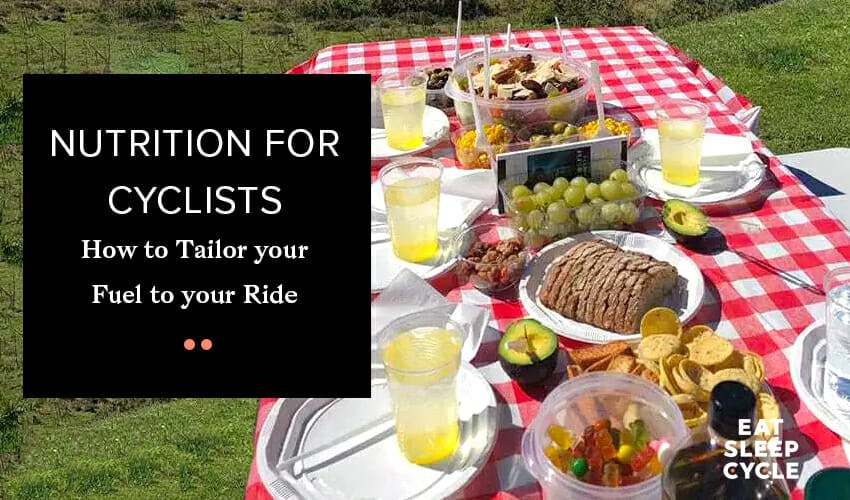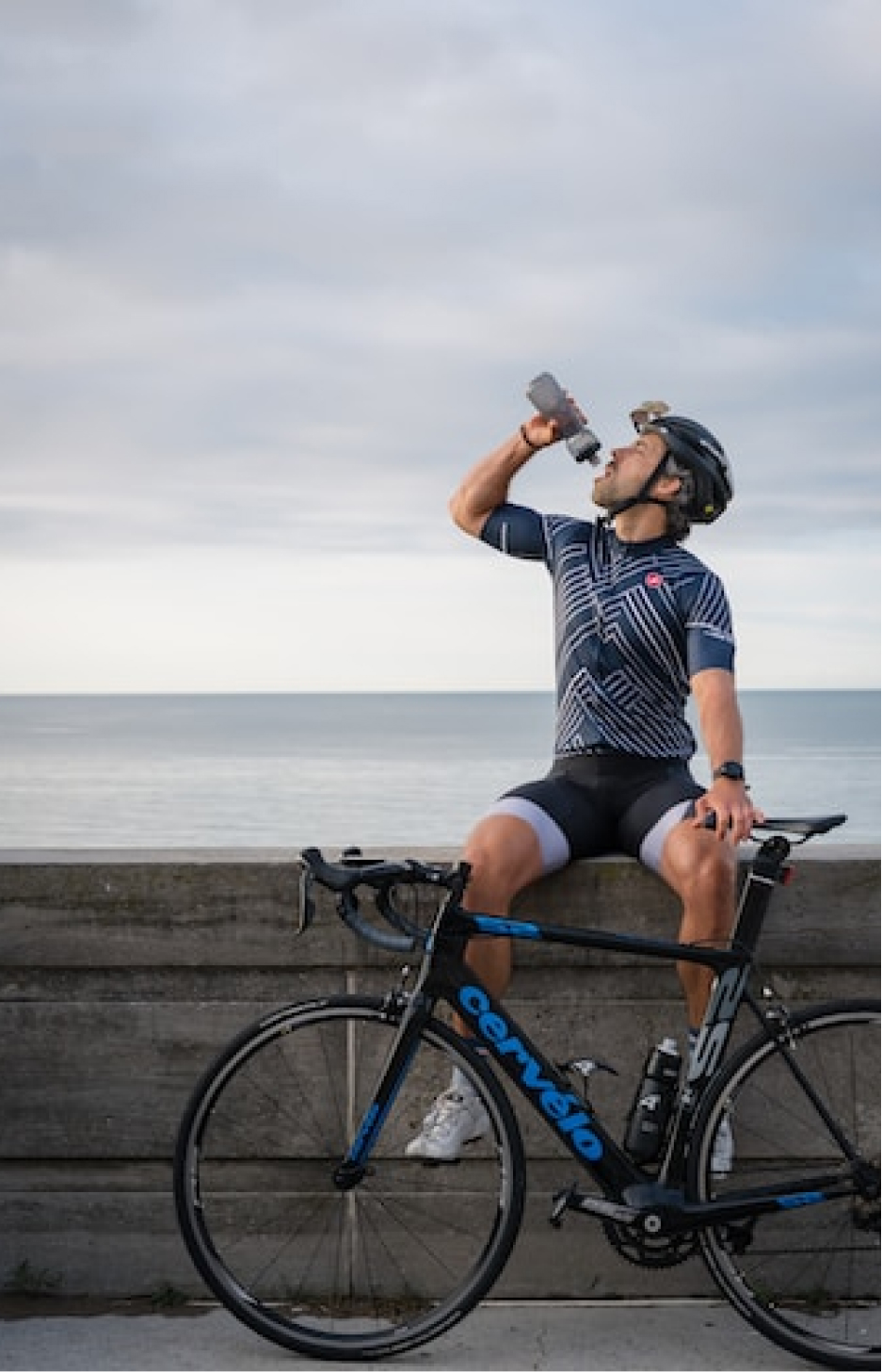Getting the right nutrition for cyclists both on and off the bike is one of the most important aspects of cycling. Ensuring that you fuel correctly for the ride ahead can make the difference between flying to KOMs or bonking and subsequently crawling home. Of course, different cycling challenges require different nutritional strategies, the type […]
Getting the right nutrition for cyclists both on and off the bike is one of the most important aspects of cycling. Ensuring that you fuel correctly for the ride ahead can make the difference between flying to KOMs or bonking and subsequently crawling home. Of course, different cycling challenges require different nutritional strategies, the type of fuel needed for a leisure ride vs a hard-core endurance event are vastly different. So how do you fuel correctly for each kind of ride? In this post we’ll give you some examples.
All-day Leisure Ride – Cycling Nutrition
Leisure cycling is all about enjoying the scenery and going at your own pace, usually stopping for lunch along the way and just soaking up the feeling of being out and about on two wheels. Therefore, a strict nutritional strategy is not really necessary, there’s definitely no need for gels or energy bars designed to replenish vastly depleted carbohydrates and electrolyte stores. Rather, simply eating meals as you normally would or maybe snacking on fruit and nuts should suffice.
Example ride: Pirinexus
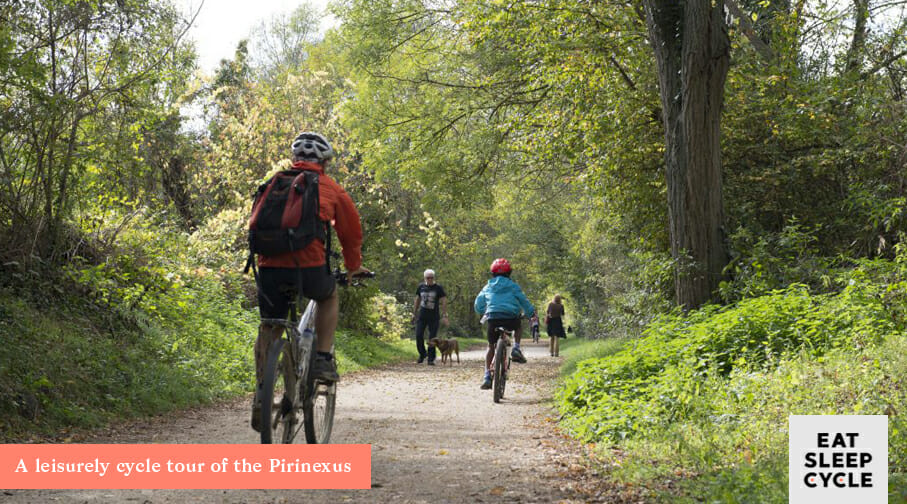
The Lunch Hour Blast
For a short but fast ride in the middle of the day you’re going to need something light but high in energy like a natural bar or some homemade energy balls. Trying to cram in a proper meal or anything more filling is going to result in some rather unpleasant sensations during the ride if you eat it any sooner than 2-3 hours before.
Nutrition for A Big Day Out/Sportive
Make sure you are optimally hydrated in the 24 hours before the event, this is almost more important than what you eat. Eat breakfast 90-120 minutes before the ride, oats are the ideal option as they provide slow-release energy and if the ride is really long then eggs can provide additional energy as well as protein. On the bike you will want to make sure that you are drinking enough (between 500ml and 1L of liquid per hour depending on the conditions). In terms of food the key is to eat before you need it, once you start to bonk or feel hungry it’s already too late! This translates to consuming roughly 0.5-1g of carbohydrates per kg of bodyweight per hour.
Example ride: La Purito Challenge
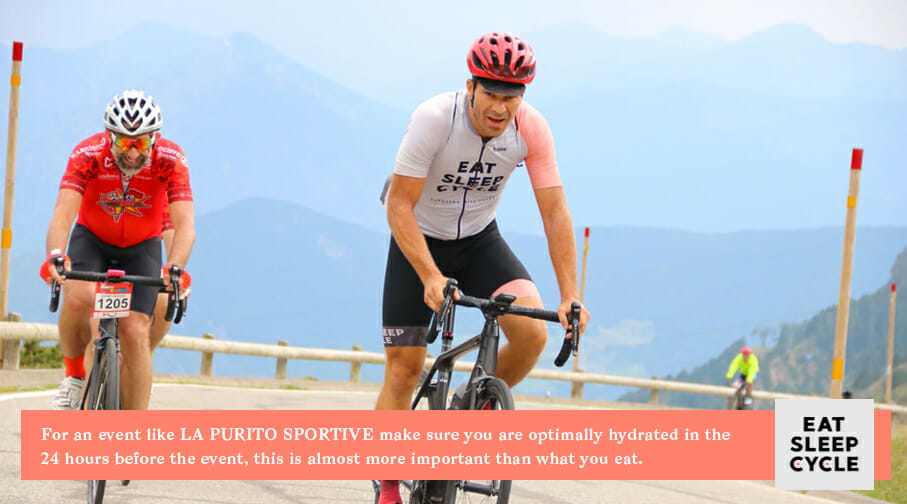
A Week-Long Cycling Vacation
A week on a cycling vacation can be as easy or as hard as you make it, but if you want to make the most of your time away then you will typically be riding most days for between 80 km and 120 km. Therefore, you will need to make sure you are consuming enough energy and drinking enough liquid. Fuelling during a cycling vacation need not be a structured and serious affair, it’s simply about avoiding the dreaded bonk so you can continue to enjoy exploring your destination! If you’re riding all day then a lunch stop is a good idea where you can make sure you fill up on food and drink (but not too much) ready to get you back ‘home’. An additional coffee stop with cake wouldn’t go amiss – you’re on holiday after all! Make sure you’re carrying energy bars and maybe a gel or two to get you through on the bike, and remember to eat and drink before you start to get hungry or thirsty.
Example tour: Classic Climbs of Girona
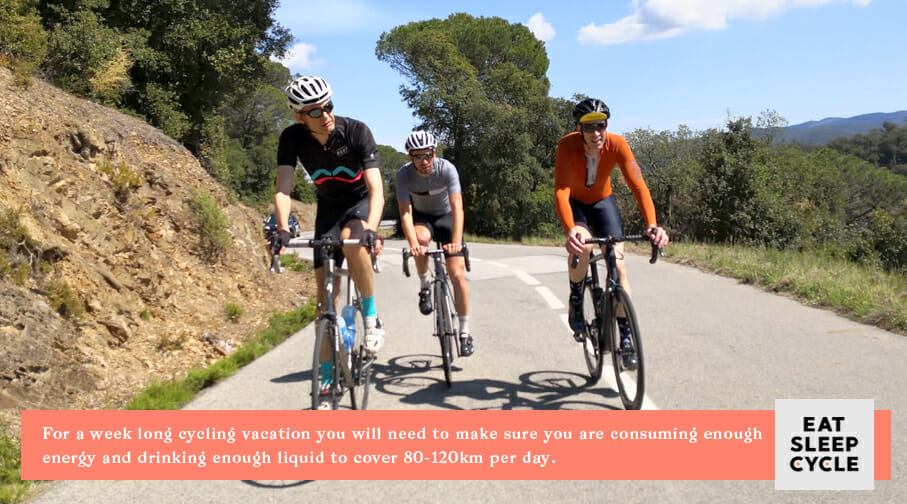
Trans Challenge Cycling Nutrition
One of the best parts of being a cyclist is that burning all those calories means that you need to replenish them which means eating more food! On an epic cycling tour like a Trans Challenge it’s vital to make sure you are consuming enough calories to sustain the effort needed to climb those Cols on those super long days in the saddle. What you eat during the ride is as important as what you eat off it so make sure you are eating approximately 0.5-1g of carbohydrates per kg of bodyweight per hour and drinking around one 500ml bottle per hour. If you find yourself bonking or dehydrated on the bike this can negatively affect how you feel the next day so staying hydrated and fuelled is vital. It’s important to ensure that you are also filling up with slow release carbohydrates at mealtimes and eating enough protein for recovery.
Top pick: Trans Pyrenees
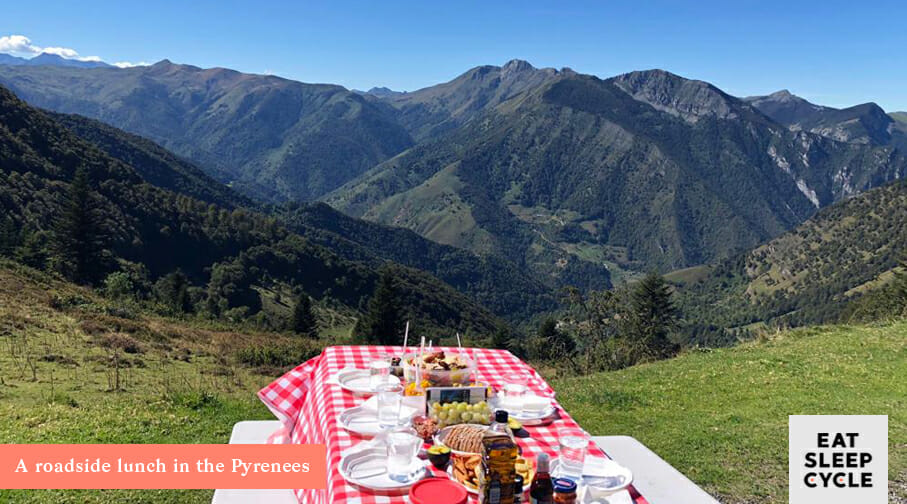
Nutrition for Cyclists – Are you Fuelled Up?
Are you fuelled up and ready for a cycling vacation? We have a range of tours (and nutrition for cyclists to get your through them!) available. Browse our tours and find the right level for you! If you have any questions about which tour will suit you best – then give us a call now on +34 972 754 301 or contact us online for more info!
P.S. Enjoyed this blog? Why not sign up to receive notifications every time we post and get regular updates on our latest tours!

